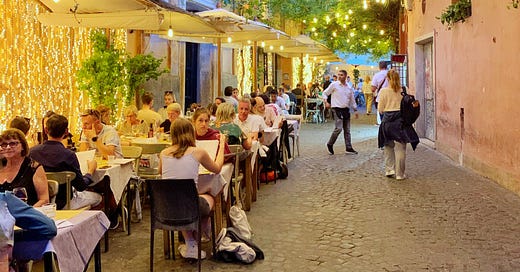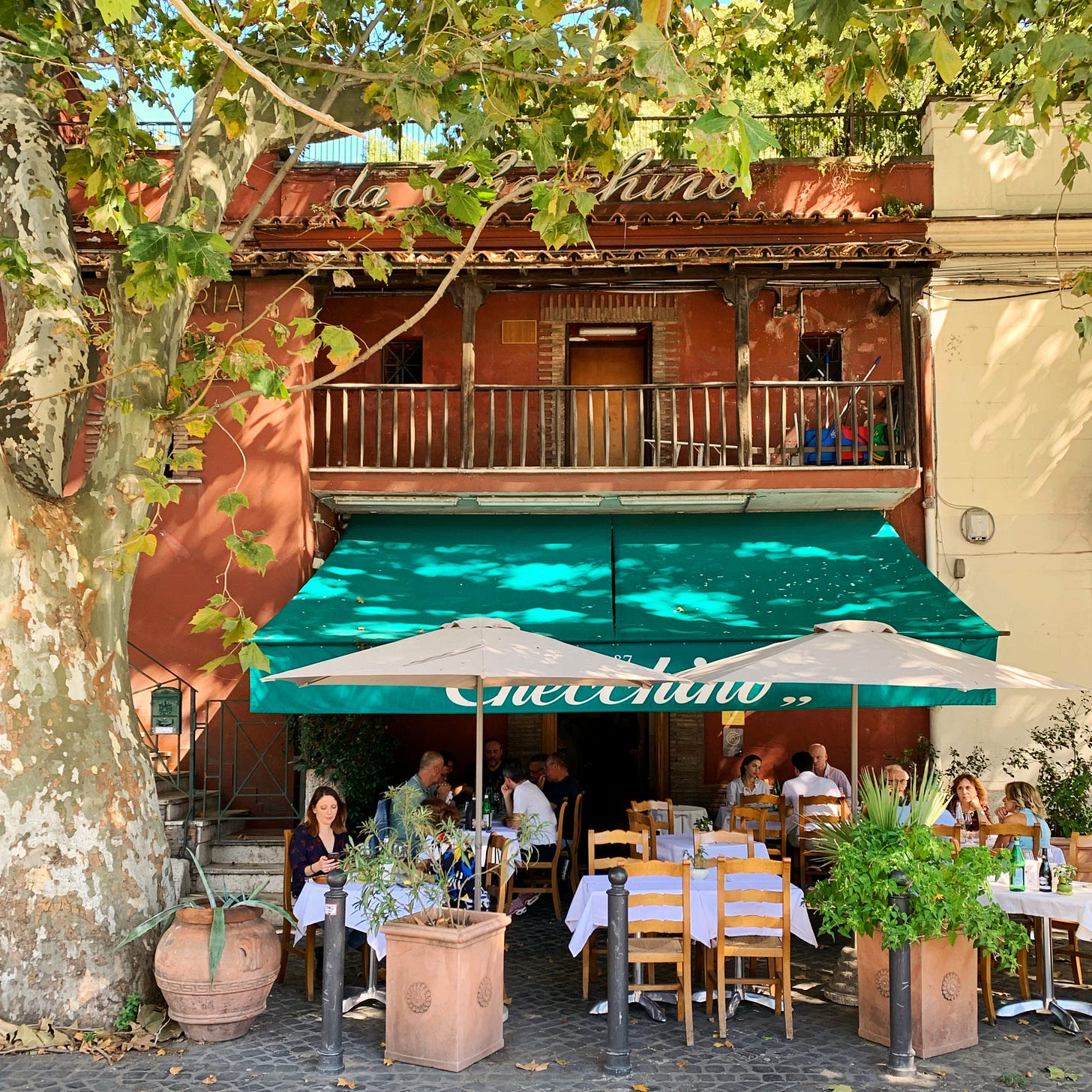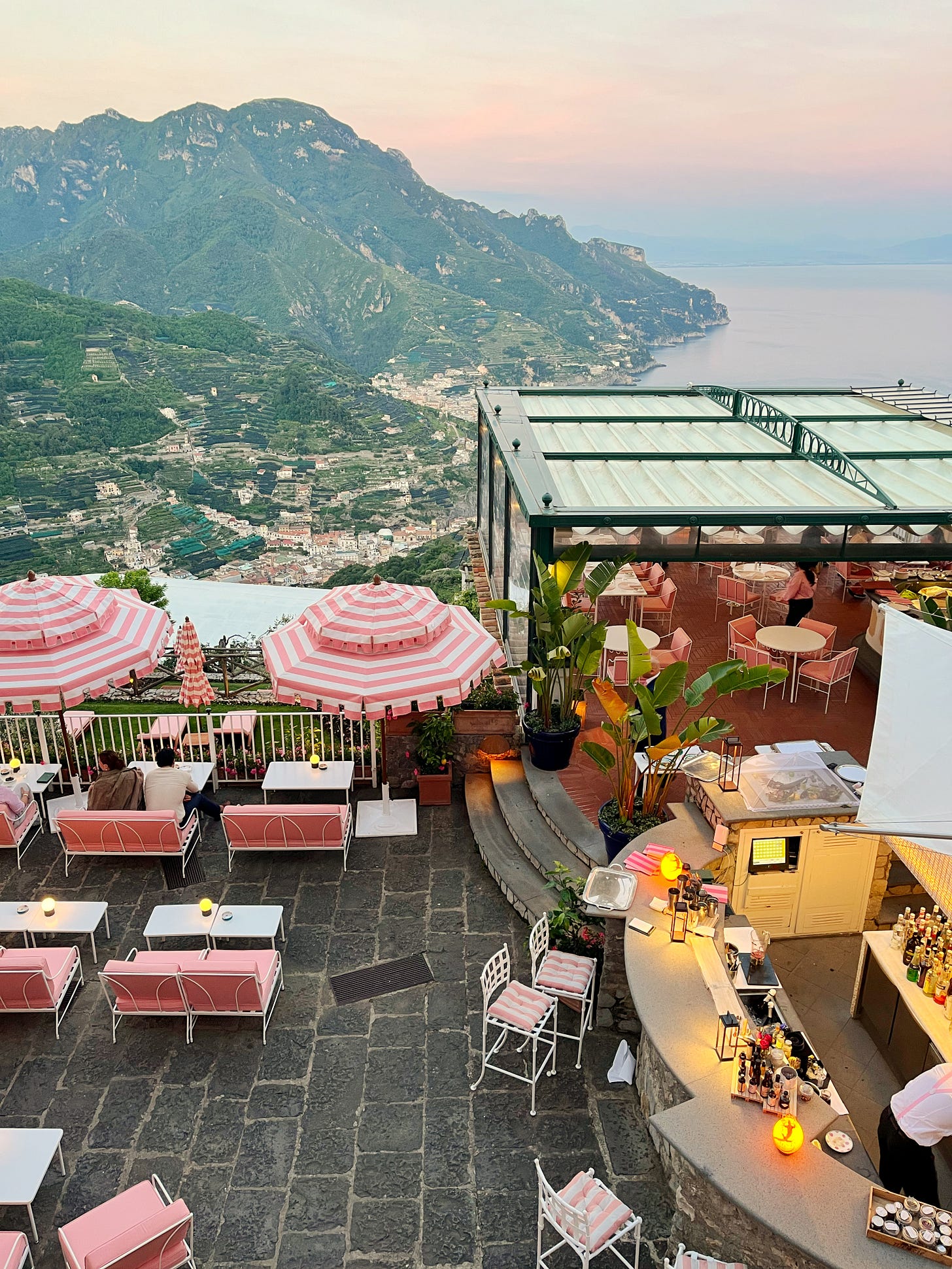If you’ve spent a lot of time in Italy or read about tipping etiquette, you’ve probably encountered the oft-repeated claim that when you go out to eat in Italy, service is usually included and therefore you don’t need to tip, except maybe for exceptional service. When you get your bill here, you might notice an extra charge for servizio, coperto, or pane e coperto, which in theory covers the service, but that money rarely makes it into your waiter’s hands.
It’s true that many Italians only leave a few extra euros for their waiter at the end of a meal. But I’m going to argue against conventional wisdom. If you want to be a better traveler in Italy, you should be consistently tipping the waitstaff and other service workers, unless you had a truly horrible experience.
The main argument supporting the tipping optional approach in Italy is summed up in an article published by Rick Steves, “Servers are paid a living wage, and tips are considered a small bonus — to reward great service or for simplicity in rounding the total bill to a convenient number.”
The problem? This might have been true years ago—back in the days of the lira—but it’s certainly not true now, especially considering inflation and the rising cost of living. According to the website Payscale, the average hourly wage for servers in Italy is €7.81 per hour. A server working 40 hours per week for that wage—without tips—would earn about €1,250 per month, which comes out to about €14,995 per year. Frankly, I don’t know how that can be considered a living wage in this day and age.
Italy doesn’t have a nationally mandated minimum wage and salaries have mostly remained stagnant for the past 20 years. The truth is that wait staff—and many other service workers—in Italy struggle to earn a living without tips. And frankly, in a country that’s extremely successful at selling an image of itself as a beautiful, laid-back paradise where everyone wears clothes by designers like Dolce & Gabbana and you can spend over €1,000 per night to stay in a luxury hotel, it’s quite shocking to learn just how little service workers are paid.
The problem is there’s not really much consensus around how much to tip in Italy. Generally speaking, it can range from rounding up the bill to leaving 10% or 15%, but if you’re used to tipping 20% and you want to do so in Italy, your waiter will likely be thrilled.
I disagree with Rick Steves’ statement that “tipping 15 or 20 percent in Europe is unnecessary, if not culturally ignorant.” On the contrary, I think it’s classy to leave a nice tip. To get another perspective, I asked a few industry insiders what they think is appropriate.
My husband Marco, who works at the restaurant in one of Rome’s top five-star hotels, suggests leaving 15% for good service. He and many of his colleagues are seasoned professionals with rigorous training and decades of experience in hospitality. They’re really invested in making sure guests have a wonderful meal.
In Italy, with very few exceptions, there’s no line for a tip on the bill at restaurants. If you pay with a credit or debit card, the person handling that transaction typically inputs the amount of your check into a hand-held card reader. If you want to add a tip on a card, you need to tell that person the amount you want to leave before they enter the number into the machine. However, most waiters would prefer if you leave some cash on the table.
According to Elisa Valeria Bove, CEO of Roma Experience, the amount you should tip your tour guide depends on the type of tour. A few euros are fine on large group tours, but she suggests tipping €10 for small group tours and anywhere from €30 - €100 for private tours. She warns against giving your guide coins. “It’s absolutely bad mannered to give coins to guides who spent years studying,” she says. “Publications like Rick Steves wrote things that are unbelievable. For me it’s unthinkable to give a euro or two to a guide who has a degree and has undergone intense preparation.”
Bove tells me that her clients typically tip €50 - 100 for private tours and when she travels she does the same unless she has a terrible experience. “I can assure you that when a guide does a good job and doesn’t get a tip, they feel hurt. It’s a way for them to know they provided an excellent service. If you received terrible service, you don’t need to leave a tip, but if you ate well, had a great tour, then of course you have to give a tip.”
In hotels, tipping isn’t required, but it’s a nice way to reward staff such as the porters, housekeeping, and concierge for good service. “In Italy, in theory, tips aren’t necessary because we have a wage system that includes service, unlike in the United States, but it’s customary to leave 10 or 15%,” says Francesca Tozzi, the general manager of the Six Senses Rome. If guests leave a tip on a credit card, it gets processed through the hotel’s internal system (and gets taxed). If they leave cash, it gets divided up among the members of the department.
Mariella Avino, owner and managing director of Palazzo Avino on the Amalfi Coast, echoes that there’s no rule, but suggests leaving a tip in an envelope at the end of your stay. “In my opinion, it’s fair to leave a tip that covers various departments because there are people behind the scenes who contribute equally to a special stay,” she says.
In my experience, taxi drivers don’t usually expect a tip, but it’s nice to round up or leave a few extra euros. Elisa suggests leaving €2 for a taxi ride that costs €10 - 20 or €5 - 10 for a ride to or from the airport.
What are you accustomed to tipping where you live? Do you adjust your tipping habits when you’re in Italy?
Further Reading
Tipping in Italy is one of the topics I discussed with Aislyn Green on a recent episode of AFAR’s podcast Unpacked. Listen here.
Want more tips (no pun intended) for how to order at restaurants in Italy? Check out my latest article for Food & Wine, with expert advice from my friend and best selling author Maria Pasquale.
For more helpful advice, be sure to read my esteemed colleague Liz Heath’s article for Travel + Leisure on what to know about tipping in Italy.
To learn more about the industry insiders who lended their expertise for this issue, check out my interviews with Elisa Valeria Bove, Francesca Tozzi, and Mariella Avino.








Enjoy your articles but I disagree with this one. Italians don’t tip, except with spare change. If the coperto isn’t for tips, neither is money added to your credit card bill. There is no obligation to pay it to the staff. Your interview subjects are all on the receiving end of tips, not surprising that they like them. Italians on the paying end are getting the same average wage as the staff. I don’t think they are particularly happy with Americans leaving tips. If you want to help them, I suggest staying in hotels instead of airbnbs that are inflating apartment rents and forcing many to move from the center to the hinterlands.
I've been working as a guide in Rome for 17 years and I have to say Rick Steves is the bane of my existence as a guide. And when I get an obvious Rick Steves client, I have to spent my three hours correcting them on just about everything cultural in Rome, not just tipping.